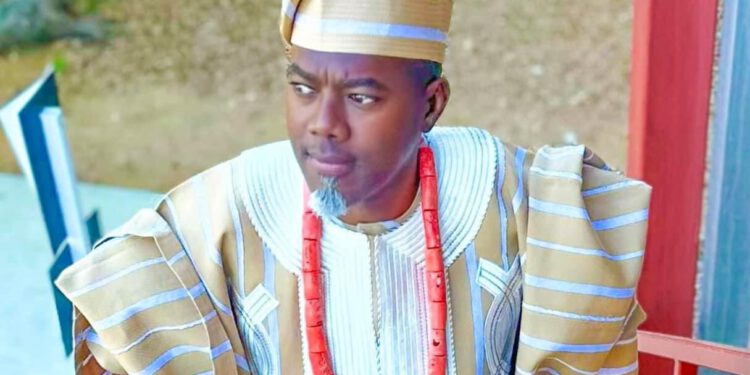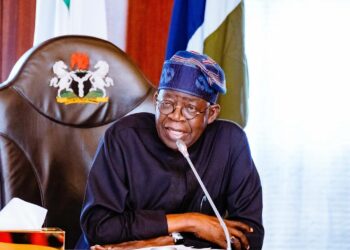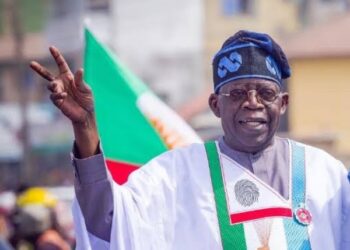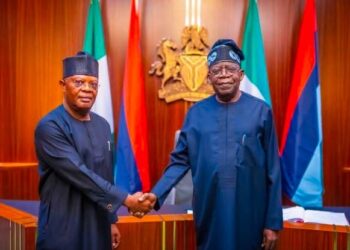Reno Omokri, a renowned author, social media influencer, and former Special Assistant to ex-President Goodluck Jonathan, has urged Nigerian leaders, especially former heads of state, to adopt private channels of communication when offering critiques or advice to incumbents.
In a detailed commentary, Omokri emphasized the importance of statesmanship and unity in addressing national concerns.
Omokri pointed out that while criticism is essential in governance, airing grievances publicly rather than engaging through private discussions or written correspondence can exacerbate tensions, divide the country, and empower adversaries. “As a former leader, when you have counsel or a critique of the incumbent, perhaps the statesmanlike thing to do would be to approach them privately and air your opinion,” he stated.
He specifically referenced former President Olusegun Obasanjo, whom he described as “one of the most outstanding living Nigerians,” noting the pivotal role Obasanjo played in Nigeria’s history, including his leadership during the Civil War and efforts toward national unity.
However, Omokri questioned Obasanjo’s current approach to public criticism of leaders, contrasting it with the principles of effective leadership.
Citing examples, Omokri recalled moments when Obasanjo, during his tenure as president, publicly attacked critics. In December 2001, Obasanjo reportedly convened a press conference to lambast Professor Sam Aluko for openly critiquing his administration, despite opportunities for private engagement.
Similarly, in August 2011, the former president publicly referred to General Ibrahim Babangida as a “fool at seventy” in response to criticisms from the former military ruler.
Omokri questioned the inconsistency in Obasanjo’s actions, stating, “If President Olusegun Obasanjo does not like to be publicly criticised while he was a sitting President and as a former leader, why does he do it to others?” He further invoked Christian teachings and the Golden Rule, urging Obasanjo to reflect on Matthew 7:12: “Do to others what you would have them do to you.”
The former presidential aide also highlighted the leadership principle taught at the U.S. Army War College: “Praise in public, criticise in private,” which he argued is vital for national cohesion and stability.
He commended former Presidents Jonathan and Muhammadu Buhari for handling their concerns with sitting administrations discreetly, embodying the spirit of elder statesmanship.
Omokri urged the current and former leaders to prioritize Nigeria’s unity and security in their engagements. “When you ignore these opportunities and processes and immediately go public, you create tension, divide the country and arm those internal and external enemies who will never see good in Nigeria,” he warned.
Read the full text of the article below:
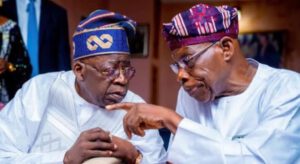
As a former leader, when you have counsel or a critique of the incumbent, perhaps the statesmanlike thing to do would be to approach them privately and air your opinion. If you do not want to see them, another option is to write to them.
However, when you ignore these opportunities and processes and immediately go public, you create tension, divide the country and arm those internal and external enemies who will never see good in Nigeria.
Former President Olusegun Obasanjo is, in my opinion, one of the most outstanding living Nigerians, and just as I said to then-President Jonathan, I believe it is not helpful for any government to fight him fire for fire, particularly as he fought for Nigeria’s unity and was the officer, who as Colonel Obasanjo, defeated the rebel Republic of Biafra, captured their leaders, except Colonel Ojukwu, and brought them to Dodan Barracks to surrender to General Yakubu Gowon on Thursday, January 15, 1970.
With the aforementioned, perhaps respectfully giving President Obasanjo the benefit of the doubt would be a prudent course of action.
Instead of responding in kind to President Obasanjo’s attacks, it may have been a good idea to remind Chief Obasanjo that he, as an incumbent President, called a press conference on Monday, December 3, 2001, where he insulted and poured invective on Professor Sam Aluko for having the audacity to publicly criticise him, when he (President Obasanjo) had made it possible for Professor Aluko to have a private audience with him.
Then President Obasanjo did that himself. He did not wait for his spokesman, Dr. Doyin Okupe or go through his other aides. He personally bombed Professor Aluko and called him some colourful names.
It should be pointed out to Chief Obasanjo that he may want to watch that December 3, 2001 press conference video and juxtapose it with his current conduct in November 2024.
Additionally, when General Ibrahim Babangida publicly criticised Chief Obasanjo during his usual birthday interviews, former President Obasanjo called a press conference on Friday, August 19, 2011, and insulted General Babangida, describing him as a “fool at seventy”.
Now, the question is this. If President Olusegun Obasanjo does not like to be publicly criticised while he was a sitting President and as a former leader, why does he do it to others?
He is a Christian, and this goes against the teachings of Christ to “do to others what you would have them do to you”-Matthew 7:12.
Chief Obasanjo may want to be reminded that former Presidents Jonathan and Buhari often have a lot to say, but, like the elder statesmen that they are, they do it in private.
As a brilliant military strategist and tactician, I suspect Chief Obasanjo may be aware of the leadership strategy taught at the U.S. Army War College, Carlisle, Pennsylvania. It says that national leaders should “Praise in public, criticise in private” for effectiveness, efficiency, and cohesion in their nations. Otherwise, they are playing into the hands of their nation’s enemies.
Reno Omokri
Gospeller. Deep Thinker. #TableShaker. Ruffler of the Feathers of Obidents. #1 Bestselling author of Facts Versus Fiction: The True Story of the Jonathan Years. Hodophile. Hollywood Magazine Humanitarian of the Year, 2019. Business Insider Influencer of the Year 2022.


